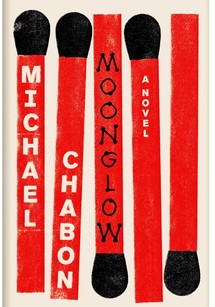25 Books to Read This December
Gorgeous gift books, mesmerizing memoirs, phenomenal fiction and more reads to cozy up with this winter. Want more stories like this delivered to your inbox?
Sign up for the Oprah's Book Club Newsletter!By The Reading Room

12 of 25
Moonglow
By Michael Chabon
448 pages;
Harper
Michael Chabon’s prodigious career is the stuff of writers’ dreams, from his acclaimed launch, The Mysteries of Pittsburgh, rocketing forward with Wonder Boys (made into a feature film) and the Pulitzer Prize–winning The Amazing Adventures of Kavalier & Clay.
An ardent craftsman who’s worked across a spectrum of forms, he’s
cemented a reputation as a stellar wordsmith and master chronicler of
the American Jewish experience.
In 1989, Chabon traveled to his
mother’s house in Oakland, where his grandfather lay dying of cancer.
For a week, the young Chabon listened as this usually reserved man,
hopped up on painkillers, poured out the story of his life, much of
which he’d never shared with his grandson. Nearly 30 years later, Chabon
here revisits those yarns and spins them into gold, producing a tale
that is at once myth and ode. Moonglow is an exuberant meld of
fiction and family history that opens with the grandfather’s deathbed
confession. The novel cuts back and forth in time and spans decades—from
walk-up tenements in gritty Depression-era Philadelphia to midcentury
Manhattan skyscrapers to late-’80s stucco condos in Florida—its imagery
sparkling on each page, reflecting influences ranging from the Space Age
to sitcoms to Philip Roth. Chabon peels back his grandfather’s stolid
facade to reveal the delicate emotions beneath. But it’s the caliber of
his writing—evocative sentences and indelible metaphors—that gives the
novel its luster, as in the moment when his grandparents meet: “The
girl’s lips were painted red as Bicycle hearts and diamonds, and they
parted to reveal an Ingrid Bergman smile to go with the sunglasses. My
grandfather heard a sound inside his head that he compared, years later,
to the freight train rumble of an earthquake.... Swept off his feet, he thought. This is that.” Moonglow
prisms through a single life the desires and despair of the Greatest
Generation, whose small steps and giant leaps continue to shape us
all.
— Hamilton Cain
Published 11/21/2016


